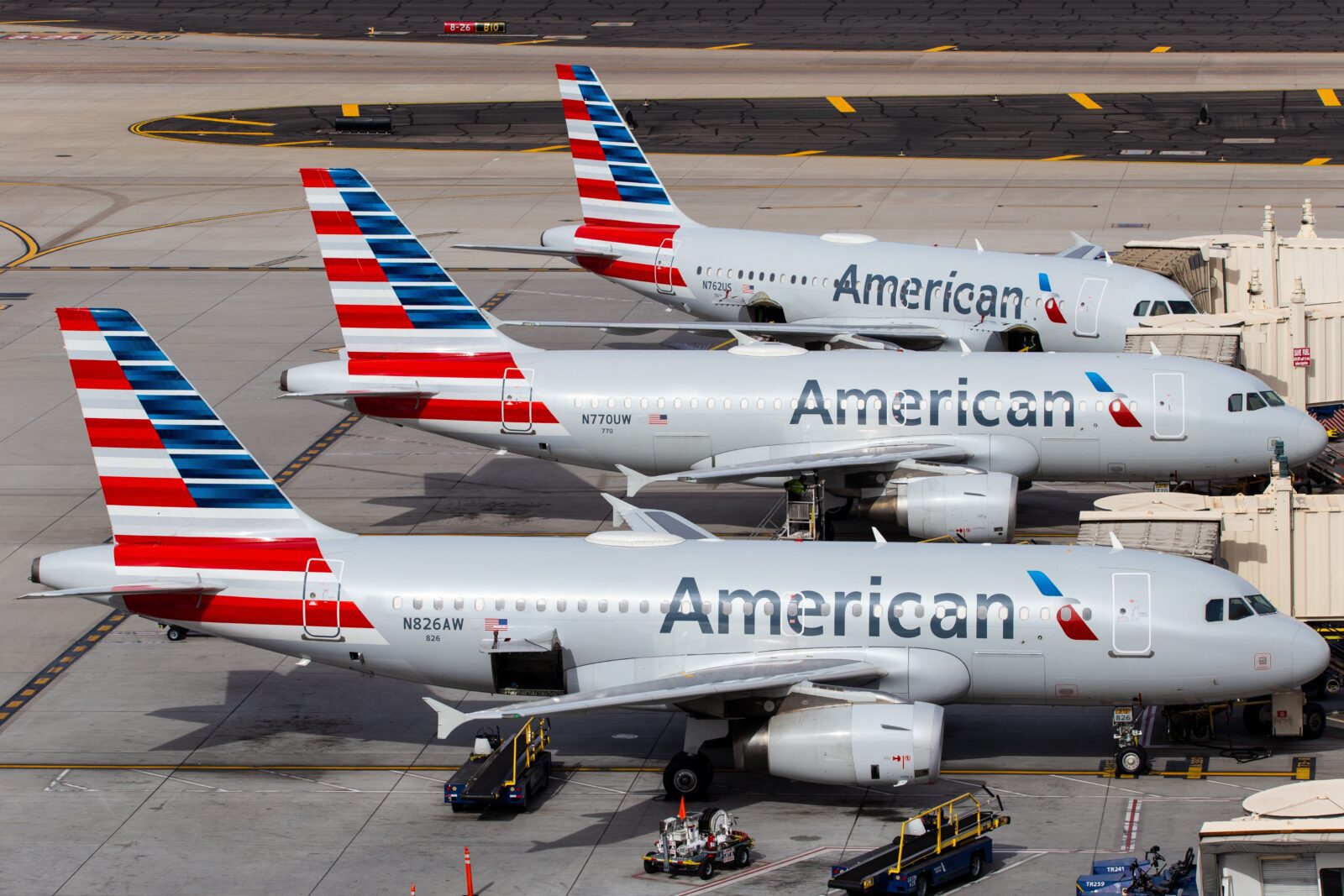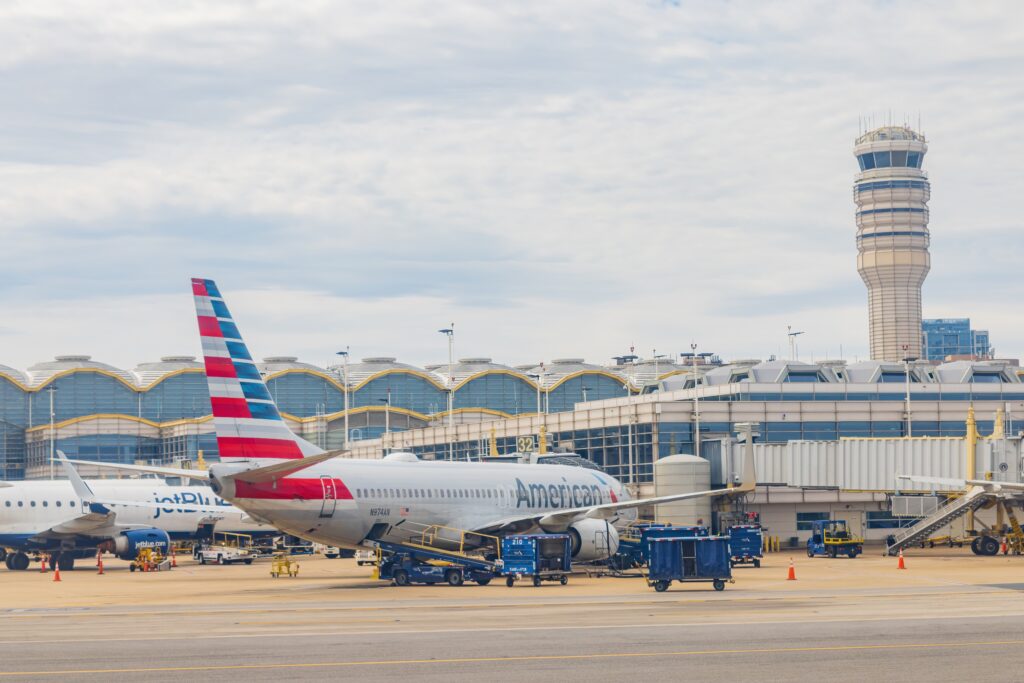
A legal team representing American Airlines has been dealt a severe blow by a judge presiding over a lawsuit brought by a passenger who was injured when a flight attendant fell on top of her after an ‘aggressive’ and ‘hostile’ unruly customer pushed the crew member.
Late last month, US District Judge Amir Ali denied the airline’s request to have the case dismissed, concluding that there were important negligence claims on the part of American Airlines that needed to be answered after it failed to remove the unruly passenger in a timely manner.

The case was brought by Njeri Williams from Barbados in 2023, in which she demanded half a million dollars in compensatory and consequential damages from American Airlines over the alleged negligence of the flight attendant and a ground agent.
Williams says she suffered a serious back injury after the flight attendant fell on top of her and had to be transported to the hospital, where she underwent “painful medical treatment” and physical therapy following the incident at Reagan National Airport in Washington DC.
According to the original complaint filed in a DC court, on May 30, 2021, Williams was traveling on American Airlines flight AA2123 from Reagan National to New York JFK, and shortly after boarding the plane and taking her seat in the front row, she fell asleep prior to takeoff.
As the plane was taxiing for departure and the flight attendants were performing the safety demonstration, a passenger slightly further back started making a scene during a “hostile and aggressive” FaceTime call.
A flight attendant asked the woman to end the call and place her cell phone in airplane mode but the passenger ignored the request and continued her “combative” call with an unknown person.
When the flight attendant again instructed the woman to end her call, she became aggressive towards the flight attendant so a decision was made to return to the gate to have the unruly passenger removed.
Once parked back at the gate, however, the unruly passenger was initially asked to get up from her seat but leave her hand luggage and then have a conversation with a ground manager in the forward galley.
During this conversation, the unruly passenger decided to retrieve her hand luggage and made her way down the aisle. At this exact moment, another flight attendant was walking towards the front of the plane. The unruly passenger ‘struck’ the flight attendant, who toppled over and fell on top of Williams.
American Airlines unsuccessfully argued that the court should move to summary judgment and dismiss the case because the injury that Williams suffered was the sole fault of the unruly passenger who had an altercation with the flight attendant.
Williams, however, successfully argued that internal procedures at American Airlines stipulate that routine traffic through the cabin should be suspended when there is “suspicious or threatening behavior.”
In this case, the flight attendant who was pushed was walking to the front of the plane to retrieve a wallet of one of the passengers that had been left in the airport.
Williams also argued that unruly passengers must be removed from the aircraft in a “timely fashion” and that simply didn’t happen in this case. Rather than getting the woman to immediately collect her hand luggage and escort her off the plane, the ground agent proceeded to have a conversation with her in the forward galley.
American’s legal team claims that the woman was, in fact, removed from the airplane in a timely fashion but a report by one of the flight attendant’s counteracts that arguments, stating that managers “did not remove the passenger in a timely manner, and allowed her to pause in the galley and remain onboard the aircraft for longer than she should have.”
In any case, American Airlines tried to persuade the court that any compensation should be capped in line with Article 17 of the Montreal Convention, which makes airlines liable for injuries sustained by passengers during an international flight.
The Montreal Convention has a routine cap of 128,821 Special Drawing Rights, which is an international asset created by the IMF that represents a basket of different currencies.
At present, 128,821 Special Drawing Rights are equivalent to around $170,940.
Again, American Airlines lost its argument after the judge ruled that the Montreal Convention’s compensation cap only applies if the “damages were solely due to the negligence or other wrongful acts of a third party.”
“American, therefore, has not satisfied its burden under Article 21(2) to disprove negligence,” the March 18 judgment concluded. “For the foregoing reasons, American’s motion for summary judgment, ECF No. 34, is denied.”
The case is now set to go to jury trial.
Mateusz Maszczynski honed his skills as an international flight attendant at the most prominent airline in the Middle East and has been flying ever since... most recently for a well known European airline. Matt is passionate about the aviation industry and has become an expert in passenger experience and human-centric stories. Always keeping an ear close to the ground, Matt's industry insights, analysis and news coverage is frequently relied upon by some of the biggest names in journalism.







